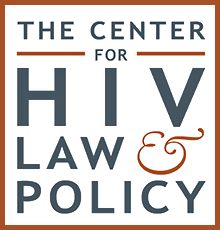Overview
New York does not have any HIV-specific laws; however both communicable disease and general criminal laws exist which can be used to prosecute people living with HIV, and a civil confinement law can keep people with HIV in prison long after their prison term has been served. Relatively few cases have been reported in New York – given the high number of people living with HIV in the state – in part due to a somewhat restrictive interpretation of the law by the courts. However, those that have been reported have often been high-profile cases extensively covered in the media.
New York public health law criminalises perceived ‘exposure’ to ‘venereal diseases’, making it a misdemeanour offence for anyone who knows they are living with an ‘infectious venereal disease’ to have sexual intercourse with another. The law does not define ‘infectious venereal disease’, but it is known to include HIV. There is no requirement for intention to transmit or actual transmission within the law, and there is no defence of disclosure or use of protections, however the New York Department of Health has publicly stated that it believes the law should not apply to cases where the person disclosed their status prior to sex or did not know their status. It further stated that the law should only apply to cases of knowing ‘exposure’ to an ‘acute, bacterial venereal disease’ such as syphilis or gonorrhoea, which would exclude HIV. However, this guidance is not legally binding (see CHLP report below).
Perceived ‘exposure’ is also prosecutable under general criminal laws, though the courts have applied general provisions relatively restrictively. The most prominent offence which has been used to prosecute people living with HIV is ‘reckless endangerment’, initially prosecuted in the first degree, which is a felony charge. However, high-profile legal proceedings involving a man living with HIV who had unprotected sex with his partner on multiple occasions without disclosing his status, allegedly resulting in HIV transmission, led to a series of rulings which downgraded the possible charge for such conduct to second-degree reckless endangerment, a misdemeanour offence. The basis for this decision was that first-degree reckless endangerment requires a ‘depraved indifference to human life’ through conduct which carries a ‘grave risk of death’, which, based on expert medical testimony, is not satisfied by HIV ‘exposure’ due to improved medical treatments which allow people living with HIV to live ‘very healthy, normal’ lives, and in this case a lack of evidence of the required indifference to life by the defendant. This ruling saw the maximum sentence for perceived ‘exposure’ under this provision reduced from seven years’ imprisonment to one year and a fine.
There has also been some possibility of aggravated assault charges being laid against people living with HIV for perceived ‘exposure’ through bodily fluids on the basis of their fluids being considered a ‘deadly weapon or dangerous instrument’. Another high-profile case initially saw a man living with HIV convicted for aggravated assault in 2006 for biting a police officer’s hand (his saliva was considered a ‘dangerous instrument’), but this was ultimately overturned in 2012 on the basis that body parts or fluids cannot be considered instruments for the purposes of this provision. The court did not appear to consider the possibility of transmission by bodily fluids of people living with HIV (in this case, virtually zero), but the ruling nonetheless appears to remove the possibility of aggravated assault charges being laid for perceived ‘exposure’ via bodily fluids.
The law also permits medical records to be accessed and used in the prosecution of people living with HIV where there is a compelling need, and health authorities can enforce isolation on people living with communicable diseases under threat of fine.
There have been only a handful of reported cases in New York, and we are aware of just nine in the state. This includes the high-profile case of Nushawn Williams who was convicted in 1997 for rape and reckless endangerment. His HIV status was widely publicised during his trial, which saw him receive a 12-year prison sentence. However, a subsequent ‘civil commitment’ has kept him imprisoned despite his sentence expiring in 2010. This has been justified on the basis that he is likely to reoffend. The Free Nushawn Coalition continues to advocate for his release.
Williams’ case initially spurred calls for a HIV-specific law to be introduced, which was proposed by at least one state senator, but did not materialise. To date, no HIV-specific law has been adopted in New York.
On World AIDS Day 2022 (1 December), New York State Assembly Member, Jessica González-Rojas announced that she would table a bill to repeal the STI ‘exposure’ law and expunge all previous convictions under the law. The lawmaker stated that “this archaic part of New York’s Public Health Law belongs in the trash heap of history, and I urge my colleagues in Albany to support this bill in the upcoming legislative session.” In 2024, a similar attempt to repeal provision §2309 was introduced in the New York Congress.
In November 2022, a lawyer representing Robert Suttle – a man convicted of HIV ‘exposure’ in Louisiana in 2009 – filed leave to appeal a lower court decision which upheld his mandatory registration as a sex offender in New York. Suttle had been forced to register as a sex offender in 2014 due to his Louisiana conviction despite there being no such requirement for offences committed in New York. After a state appeals court rejected Suttle’s initial challenge, he is seeking a review by the New York Court of Appeals. The Center for HIV Law and Policy intervened in the case in December to file an amicus brief in support of Suttle.
For a detailed analysis of HIV criminalisation in New York, as well as all other US states, see the Center for HIV Law and Policy report, HIV Criminalisation in the United States: a Sourcebook on State and Federal HIV Criminal Law and Practice.
Laws
New York Laws § 2307
Venereal Disease; Person Knowing Himself to Be Infected
Venereal disease; person knowing himself to be infected. Any person who, knowing himself or herself to be infected with an infectious venereal disease, has sexual intercourse with another shall be guilty of a misdemeanor.
New York Laws § 120.20
Reckless endangerment in the second degree
A person is guilty of reckless endangerment in the second degree when he recklessly engages in conduct which creates a substantial risk of serious physical injury to another person.
Reckless endangerment in the second degree is a class A misdemeanor.
Further resources
Not all laws used to prosecute people living with HIV in this state are included on this page. For a comprehensive overview and analysis of HIV-related criminal and similar laws and policies, visit The Center for HIV Law and Policy






